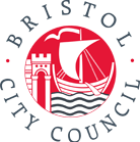Eating Disorders HIT
A team working to improve the lives of people affected by or at risk of developing eating disorders in Bristol, North Somerset and South Gloucestershire.
News related to this Health Integration Team
Bringing voices together again: local stakeholders unite to discuss disordered eating and eating disorders
More than 30 people joined EDHIT for its disordered eating and eating disorders discussion event…
EDHIT Research Conference addresses equality, diversity and inclusion within eating disorders
124 people joined Bristol Health Partners Eating Disorders Health Integration Team (EDHIT) on 17 October…
Honorary degree for local health equity champion
Subitha Baghirathan, a long-standing Bristol Health Partners collaborator, has been awarded an honorary degree by…
Impact Review 2024-25: Eating Disorders HIT
Research conference On 22 October 2024, ED HIT held its annual research conference, focusing on…
Bringing Voices Together: local stakeholders unite to discuss disordered eating and eating disorders
The Eating Disorder Health Integration Team (EDHIT) held a stakeholder discussion event on disordered…
Patient and Public Involvement event helps explore 'What fills your heart and keeps your wellbeing in balance?'
The Eating Disorders Health Integration Team (EDHIT) held a successful Patient & Public Involvement (PPI)…






